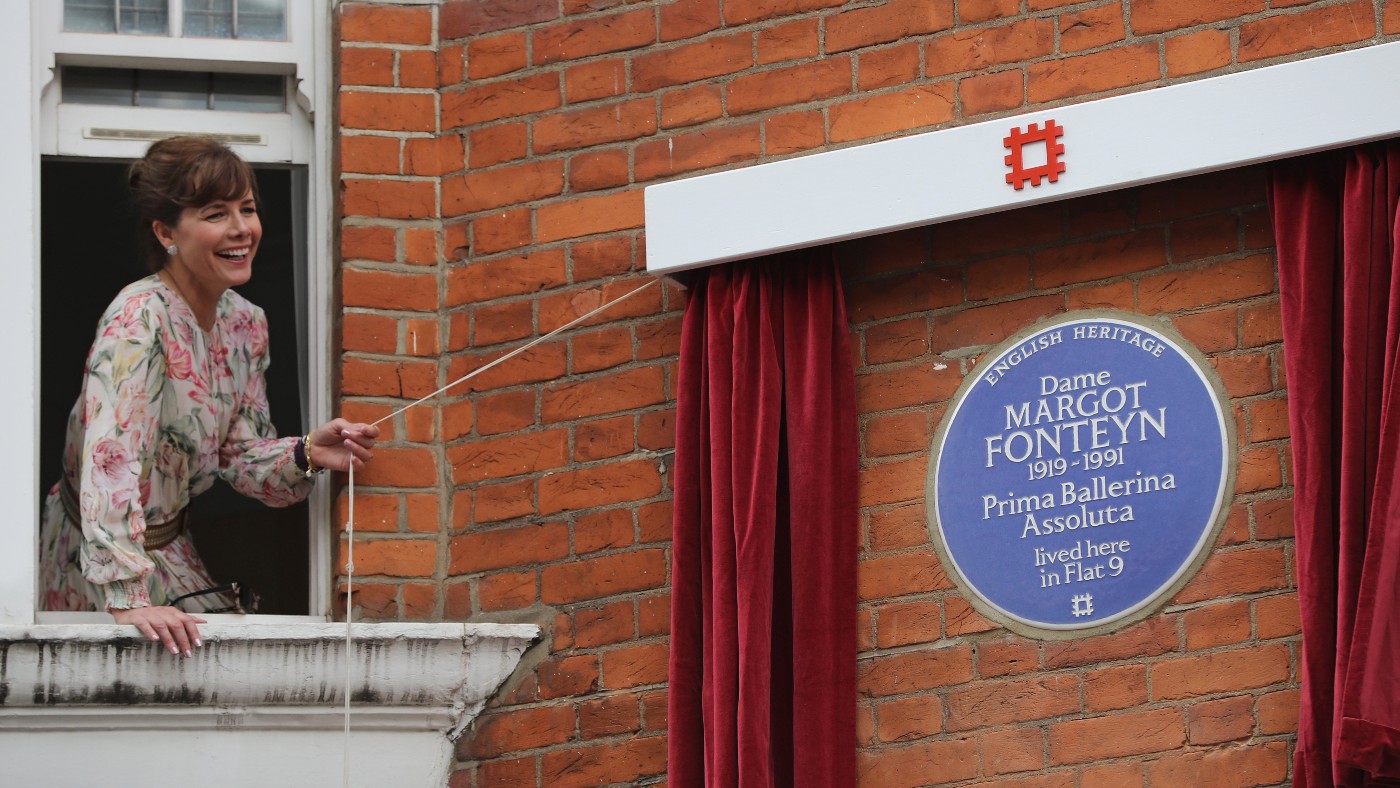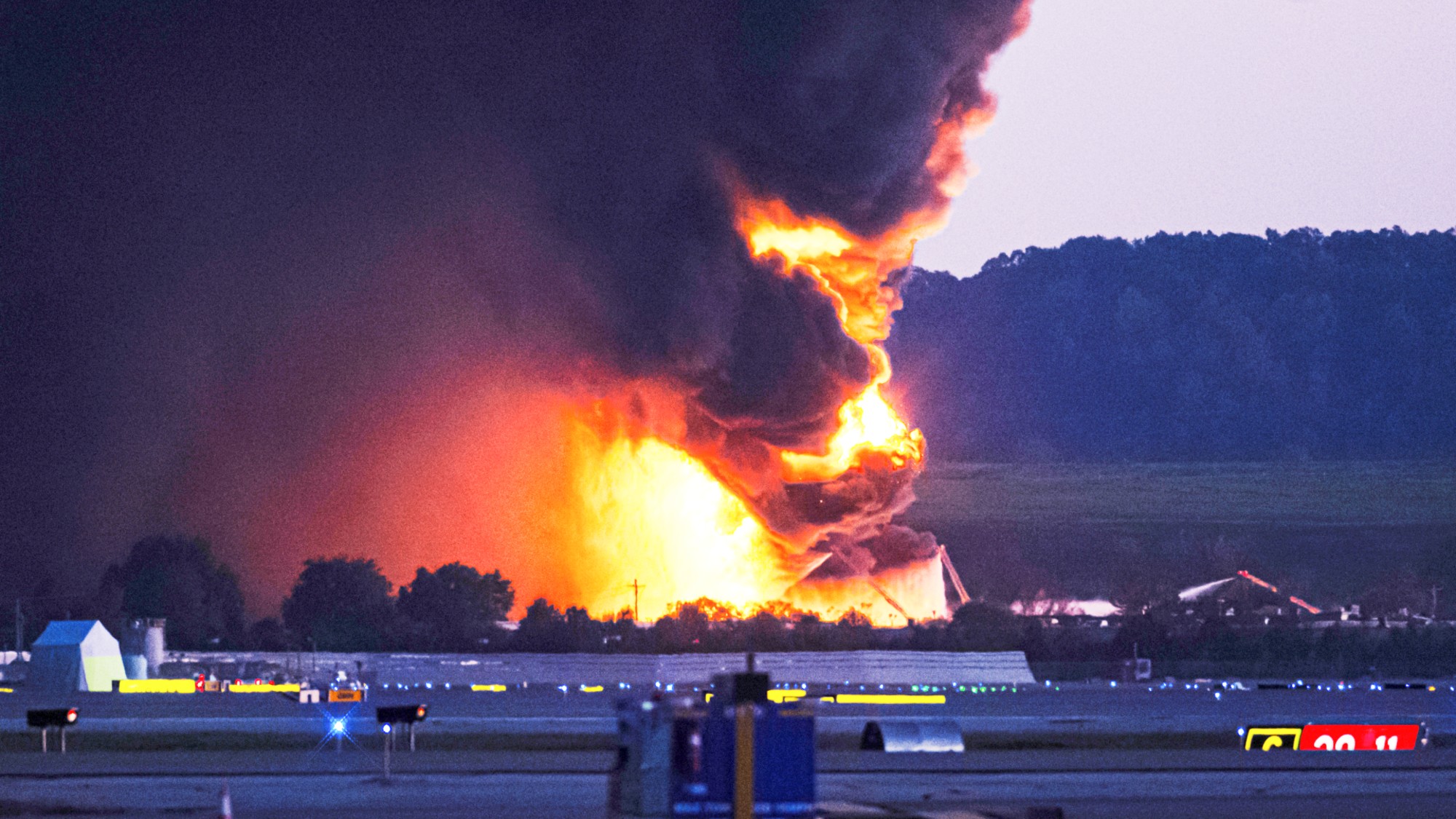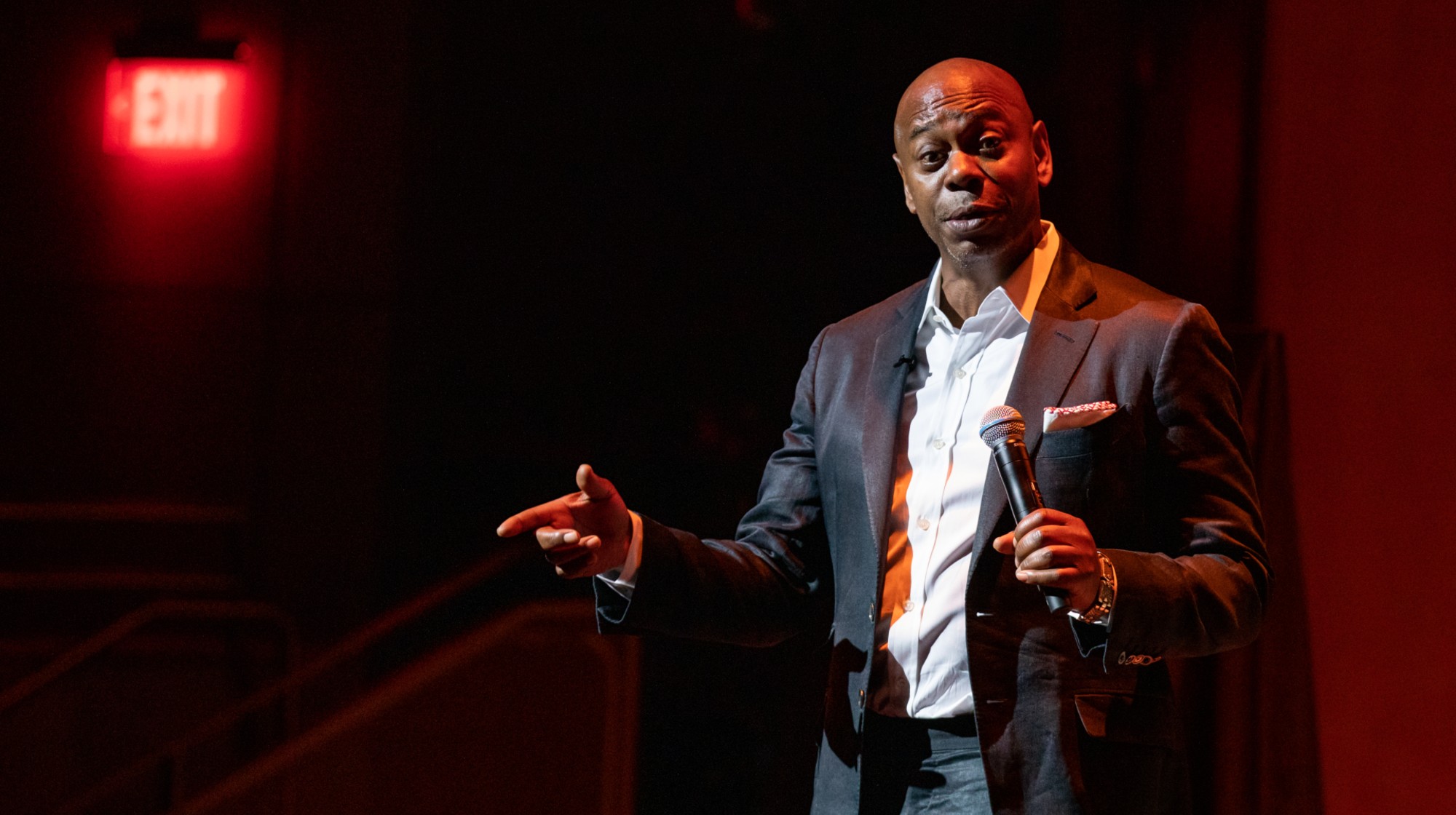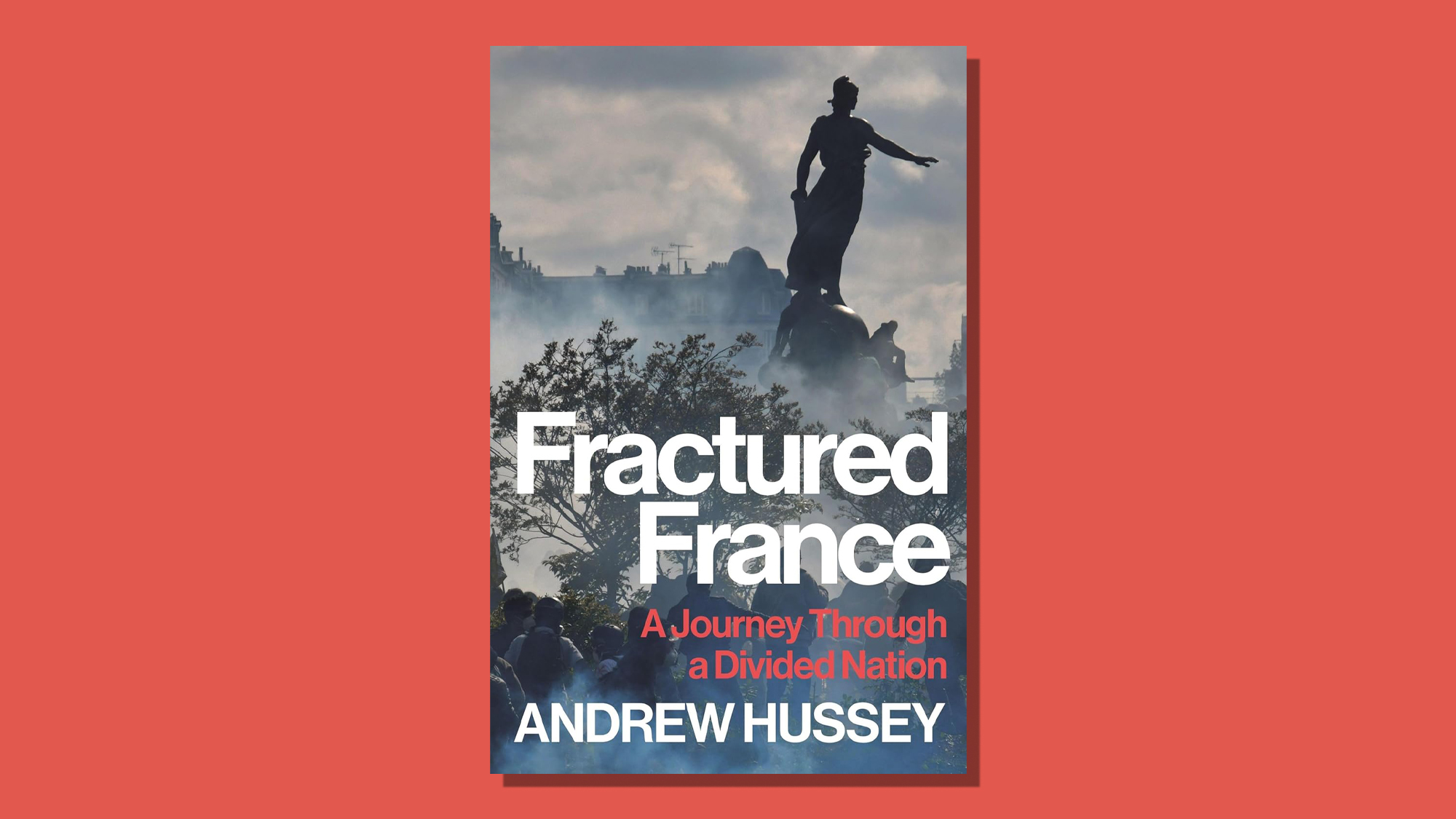Blue plaques: Historic England's search for new local heroes
Opening nominations for new iconic signs will help 'more people celebrate their heritage'

A free daily email with the biggest news stories of the day – and the best features from TheWeek.com
You are now subscribed
Your newsletter sign-up was successful
They could be a local hero or a global megastar but anyone with a notable achievement could now get "their name in the hat" for a famous blue plaque.
As the blue plaque scheme prepares to go beyond London and become national, Historic England is asking the public for nominations for the "famous" and "overlooked" alike, said The Times.
The government advisory body said that opening up nominations for the iconic ceramic signs will help "more people celebrate their heritage". But who qualifies and how will the nomination scheme work?
The Week
Escape your echo chamber. Get the facts behind the news, plus analysis from multiple perspectives.

Sign up for The Week's Free Newsletters
From our morning news briefing to a weekly Good News Newsletter, get the best of The Week delivered directly to your inbox.
From our morning news briefing to a weekly Good News Newsletter, get the best of The Week delivered directly to your inbox.
'Exclusive focus on dead white men'
Although there have been regional variations, the official blue plaque scheme previously only operated in London. But in February, Daphne Steele, the first Black matron in the NHS – dubbed a "quiet revolutionary" by RCN Magazine – became the first person to be commemorated with an official blue plaque outside London. The pottery designer Clarice Cliff has also been honoured, in Stoke-on-Trent, Staffordshire.
England's first blue plaque scheme was run by the Society of Arts and kicked off with a tribute to the poet Lord Byron in 1867. Now run by Historic England on behalf of the Department for Culture, Media and Sport, the national blue plaque scheme is designed to highlight the stories of inspirational people, from all walks of life, who have made a significant contribution to human welfare or happiness.
The plaques celebrate the relationship between people and places, including where they were born, worked, lived or died. So they need to be on surviving buildings with evidence of a meaningful connection with the person commemorated.
The "majority" of plaques, said the BBC, can be "loosely grouped" into four categories: birthplace, residence, visited by, and place of death. For instance, a "house on Prince's Street in Bishop Auckland is marked as a childhood home of Stan Laurel"; Guy Fawkes' birthplace in York and the home of his parents are "both labelled"; and the house in Southwark where Boris Karloff was born also has a plaque, though it is "now a fish and chip shop".
A free daily email with the biggest news stories of the day – and the best features from TheWeek.com
The scheme has not been without controversy. A 2021 analysis by The Guardian found that a "pitiful" 2% of the blue plaques in English Heritage's scheme commemorated Black people, although the charity had "made important strides towards changing the balance". A quarter of the plaques unveiled in the previous two years had commemorated notable Black and Asian people, after a working party was set up in 2016 to end the "exclusive focus on dead white men".
The plaques are made from a "secret mixture of clays", said the BBC, and take about three and a half weeks to finish, "assuming there are no mishaps".
There is no evidence that they add to the market value of a property, said Country Life. "It's hard to give any evidence that people are paying a premium" for such homes, estate agent David Lee told the magazine.
'Lasting connection' between people and places
Last week, Historic England unveiled a national blue plaque to rock legend George Harrison at his birthplace – 12 Arnold Grove in Wavertree, Liverpool. The unveiling, the third outside London, marked the start of the eight-week public nomination period for the new national blue plaque scheme.
Duncan Wilson, chief executive of Historic England, said the plaques capture the "lasting connection" between people and places. "The actual places where this history happens are special, but not always well known," he said.
Olivia Harrison, George's wife, said the "blue plaque recognition of George's birthplace" is a "source of family pride for all the Harrisons", and "something that none of us, mainly George, would ever have anticipated".
The criteria for public nominations says that at least 20 years must have passed since the candidate's death and they must have made a significant contribution to human welfare or happiness.
Also, at least one building associated with the figure must survive in a form that the commemorated person would have recognised, and it must be visible from a public highway. The full criteria is available on the Historic England website.
As the scheme unfolds, nominations will also be open to commemorate "groups of people (duos, groups, societies, organisations) and significant events", said the organisation.
Chas Newkey-Burden has been part of The Week Digital team for more than a decade and a journalist for 25 years, starting out on the irreverent football weekly 90 Minutes, before moving to lifestyle magazines Loaded and Attitude. He was a columnist for The Big Issue and landed a world exclusive with David Beckham that became the weekly magazine’s bestselling issue. He now writes regularly for The Guardian, The Telegraph, The Independent, Metro, FourFourTwo and the i new site. He is also the author of a number of non-fiction books.
-
 ‘Restaurateurs have become millionaires’
‘Restaurateurs have become millionaires’Instant Opinion Opinion, comment and editorials of the day
-
 Earth is rapidly approaching a ‘hothouse’ trajectory of warming
Earth is rapidly approaching a ‘hothouse’ trajectory of warmingThe explainer It may become impossible to fix
-
 Health insurance: Premiums soar as ACA subsidies end
Health insurance: Premiums soar as ACA subsidies endFeature 1.4 million people have dropped coverage
-
 Josh D’Amaro: the theme park guru taking over Disney
Josh D’Amaro: the theme park guru taking over DisneyIn the Spotlight D’Amaro has worked for the Mouse House for 27 years
-
 A 34-year-old plane is at the center of the UPS crash
A 34-year-old plane is at the center of the UPS crashIn the Spotlight Many air cargo companies use planes that are this old
-
 Saudi comedy fest exposes free speech schism in stand-up
Saudi comedy fest exposes free speech schism in stand-upIN THE SPOTLIGHT The decision by some of stand-up’s biggest names to attend a festival in a nation infamous for its censorship has the comedy world picking sides and settling old scores
-
 How historically accurate is House of Guinness?
How historically accurate is House of Guinness?In the Spotlight The glossy Netflix show about the family behind the world-famous stout mixes fact with fiction
-
 Lavender marriage grows in generational appeal
Lavender marriage grows in generational appealIn the spotlight Millennials and Gen Z are embracing these unions to combat financial uncertainty and the rollback of LGBTQ+ rights
-
 Fractured France: an ‘informative and funny’ enquiry
Fractured France: an ‘informative and funny’ enquiryThe Week Recommends Andrew Hussey's work is a blend of ‘memoir, travelogue and personal confession’
-
 Bad Bunny headlining the Super Bowl thrills and rankles
Bad Bunny headlining the Super Bowl thrills and ranklesIN THE SPOTLIGHT The Puerto Rican superstar’s upcoming halftime performance has fans ecstatic, even as some conservatives gripe
-
 BookTok is reviving publishing – but at what cost?
BookTok is reviving publishing – but at what cost?In The Spotlight Social media recommendations are boosting book sales but critics give the trend mixed reviews